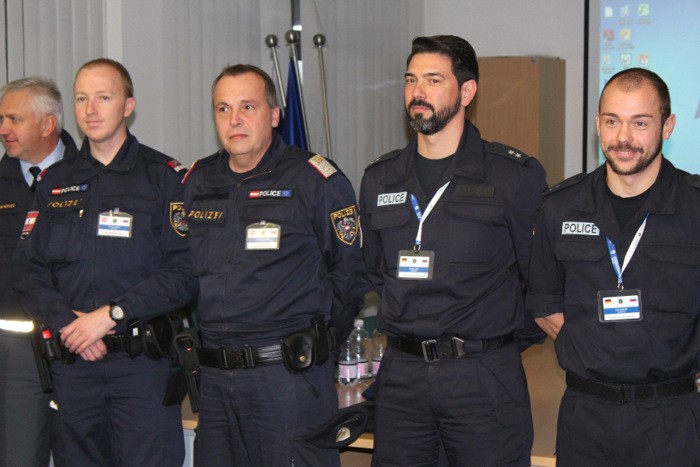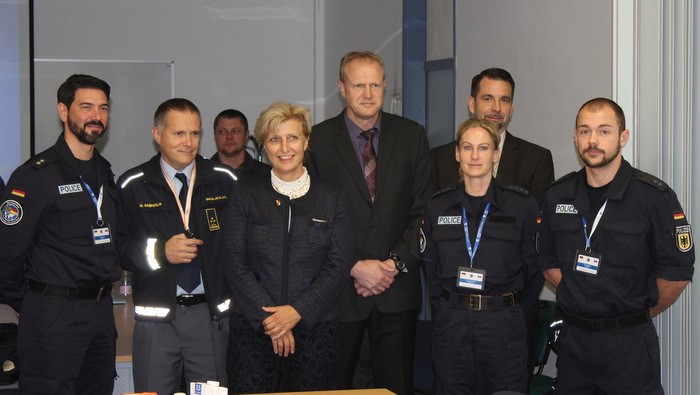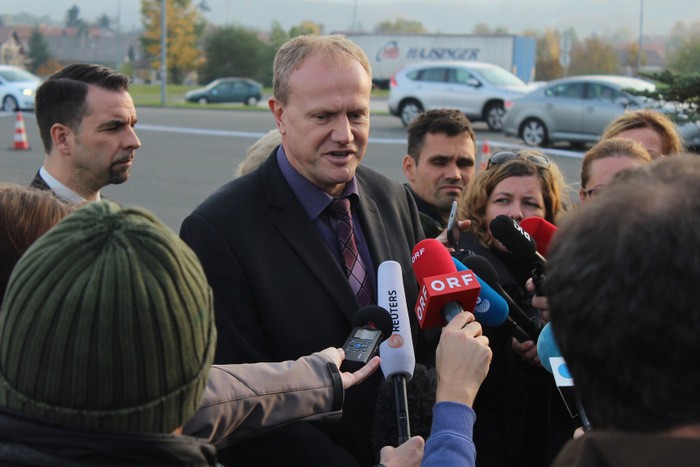This afternoon, Director General of the Police Marjan Fank visited members of the Specialised Police Unit and other police officers in the Brežice area, who have been working in extremely difficult conditions for two weeks. Together with Dr Anna Elisabeth Prinz, German Ambassador to Slovenia, he welcomed the German officers who had arrived to help the Slovenian police in their work with migrants.
The police officers of specialised police units have these days been exposed to extremely difficult working conditions, demanding security situations, often also to rain and low temperatures and, on the other hand, to different situations and human stories that touch them deeply. When meeting with them, Mr Fank thanked them for their contribution, for their extremely dedicated work, and expressed all his support. He assured them that any and all overtime hours would be paid as he would personally make sure that he delivers on this promise.
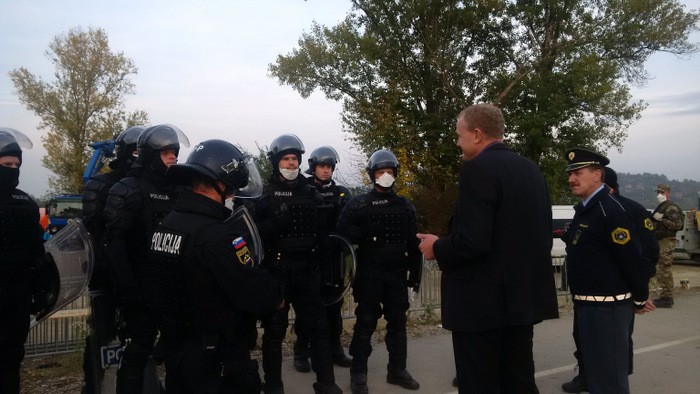
He underscored that he would like to announce they would soon be relieved; unfortunately, he was not able to say that. "We are all trying to do our best, each of us in our own field. We all wish that the situation would improve and we would go back to our normal and less hectic way of life, but mostly to our families and friends, who in these days, more often than not come second."
When the Director General asked if there was anything he could do for them, police officers modestly and unselfishly answered that the action was underway and "we simply must put up with the situation and see through it together."
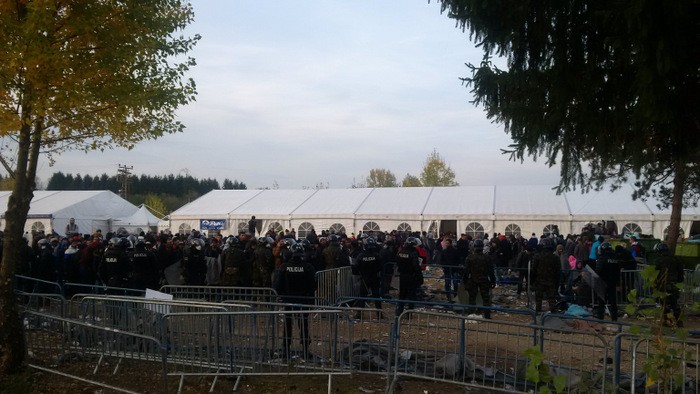
The German police officers will start work after an introductory preparation, during which they will be briefed on their tasks and powers. Foreign police officers will perform the following tasks:
- maintaining law and order
- assisting in controlling, directing and containing large migrant groups as they cross the border and assisting in further procedures with migrants
- taking part in other activities, such as closing off an area, and providing other contingency support
- preventing criminal offences.
Two representatives of the Austrian police were also present at today's meeting. Eight Austrian officers have been providing assistance to the Slovenian colleagues since 13 October. They will soon be joined by officers from some other countries.
Minister of the Interior Vesna Györkös Žnidar asked the ministers of the European Union member states, on the basis of a political agreement reached on 25 October 2015 in Brussels, to dispatch officers to help Slovenia deal with the flow of migrants. It is a form of police cooperation on the basis of the Council Decision (2008/615/JHA, of 23 June 2008) on the stepping up of cross-border cooperation, particularly in combating terrorism and cross-border crime.
The Czech Republic, Italy, Slovakia and Hungary have already responded to the call for help and coordination arrangements are under way. Lithuania, France, Estonia and Spain have also responded and the forms of assistance are being discussed. Guest officers will mostly work in the area of Maribor and Novo Mesto police directorates, which are worst affected by the influx of migrants.
It is hard to say when exactly officers from other countries will join the Slovenian police; however, officers from Hungary and Slovakia could arrive within a matter of days.
The German and Austrian police officers, as well as officers from other countries when they arrive, will only be able to exercise their powers under the guidance and, as a rule, in the presence of Slovenian officers and will be bound by the Slovenian legislation.
Police Activities in Connection with Current Migration Flows


